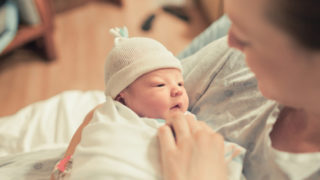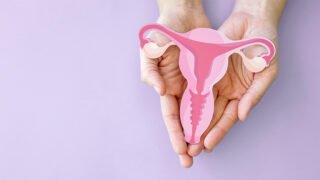The journey to parenthood isn’t always smooth, and unexpected challenges can arise along the way. Whether you’re trying to get pregnant, exploring IVF in Singapore, coping with pregnancy loss, facing fertility issues or secondary infertility, or seeking clarity on postpartum and reproductive health conditions, these specialists provide professional support and guidance every step of the way.
IVF, Pregnancy, and Getting Pregnant: What You Need to Know
Trying again after pregnancy loss: You are not alone
“The journey after pregnancy loss is one of love, longing and unimaginable strength. You carry the memories, the dreams and the ache of what could have been,” says TANJA FAESSLER, director and founder of Fertilityconnectz. “The thought of trying again may bring hope, but also fear. ‘What if it happens again? What if my heart breaks once more?’”
Thankfully, you don’t have to go through this alone. Fertilityconnectz was created to empower and support individuals and couples on their path to parenthood, offering compassionate, professional guidance every step of the way.
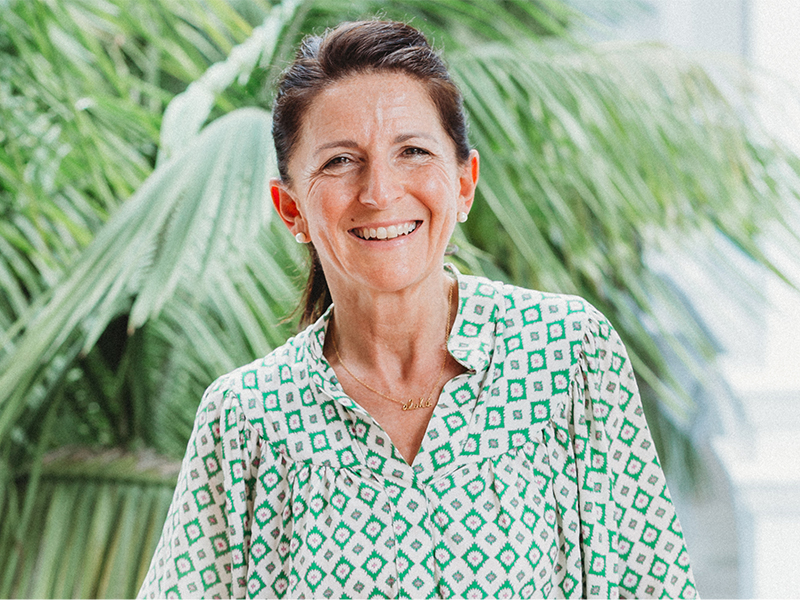
The team’s certified and dedicated counsellors provide a safe and supportive space to process emotions – helping you navigate grief, ease anxieties, and embrace the next steps.
“Healing isn’t about forgetting – it’s about finding the courage to move forward,” Tanja emphasises. “Every story of loss is different, but every heart deserves to heal. And when you’re ready to try again, we will be here to offer guidance, understanding and unwavering support. Because your dream of parenthood matters.”
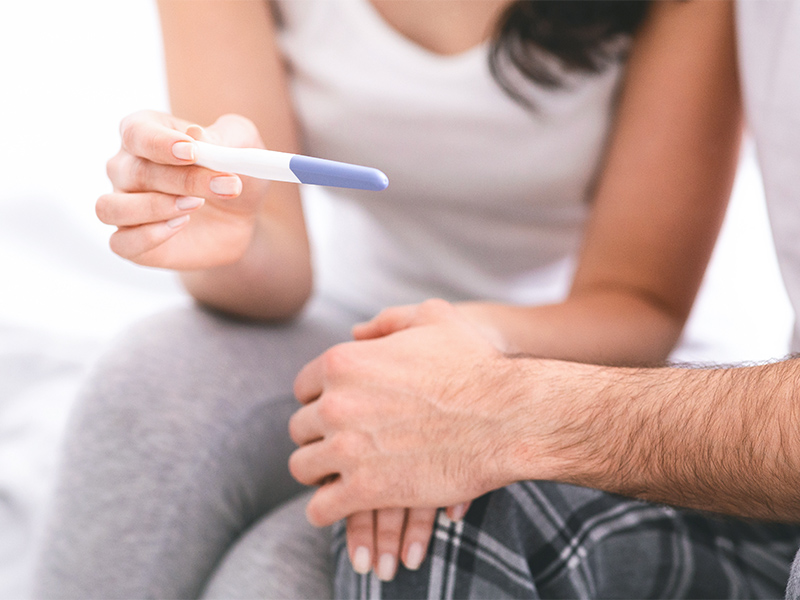
Fertility coaching is another key pillar. Through longstanding collaborations with leading IVF clinics in Singapore and a global network of fertility specialists, Fertilityconnectz remains at the forefront of assisted reproductive care.
A complimentary consultation is available for new clients.
Fertilityconnectz
#04-09 The Riverside Piazza, 11 Keng Cheow Street
WhatsApp 9784 4889 | fertilityconnectz.com
Navigating secondary infertility
“Many couples who conceived naturally before are often caught off guard when faced with challenges in trying for a second pregnancy,” says Dr ROLAND CHIENG, Medical Director at Virtus Fertility Centre Singapore. “It’s easy to assume that once you’ve had one child, subsequent pregnancies will follow naturally. But that’s not always the case.”

Family planning trends in Singapore have shifted significantly over the years. With socio-economic factors contributing to later marriages, the average age of first-time mothers has risen. Consequently, many couples are trying for a second child in their mid-to-late thirties, a stage when unanticipated fertility challenges may present.
Age is one of the key factors. “Fertility is a time sensitive journey,” explains Dr Chieng. “Women are born with a finite number of eggs – around 1 million at birth. This declines to approximately 200,000 by their twenties. Fertility begins to noticeably drop after age 32, and the decline accelerates into the late thirties. This affects not only the number of eggs but also their quality.”
Additional hurdles often stem from health changes that may occur between pregnancies, such as the development of conditions like endometriosis or polycystic ovary syndrome (PCOS), or complications from prior pregnancies. “Reproductive health is dynamic,” says Dr Chieng. “Even factors like stress, weight fluctuations or lifestyle changes can significantly impact fertility.”
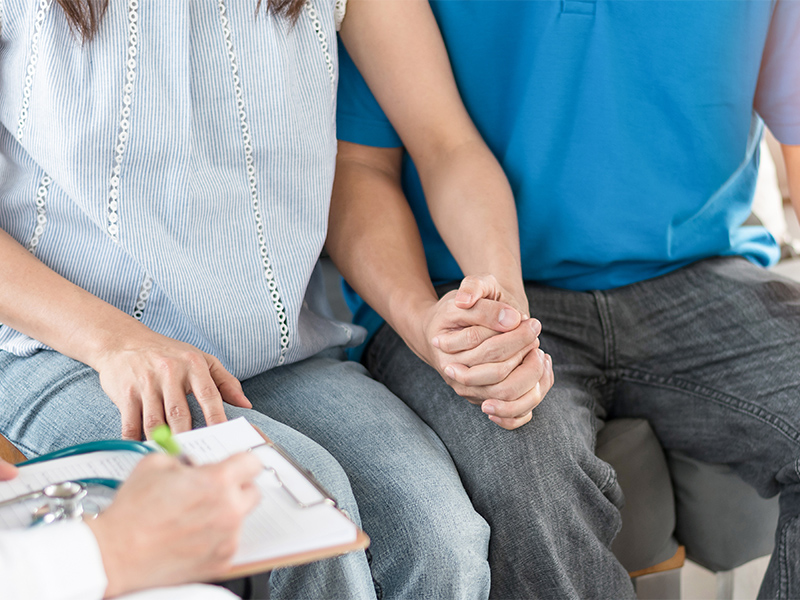
The emotional toll of secondary infertility is another consideration. Parents often experience guilt for being unable to provide a sibling for their child, compounded by their own frustration and disappointment. This struggle can feel particularly isolating, as others may downplay the difficulty with remarks like, “At least you already have one child.”
Dr Chieng stresses the importance of timely intervention. “If couples have been trying for over a year – or six months if the mother is over 35 – they should consider seeking medical evaluation,” he advises. Depending on the underlying cause, treatment options range from lifestyle changes to assisted reproductive technologies like IVF.
“The key is not to wait too long before seeking help,” Dr Chieng emphasises. “While having one child doesn’t guarantee future fertility, understanding how your reproductive health may have changed can help you plan more effectively.”
Virtus Fertility Centre Singapore
#09-01 to 05, Scotts Medical Centre @ Pacific Plaza, 9 Scotts Road
9652 1994 | 6460 4555 | virtusfertilitycentre.com.sg
Understanding PCOS and endometriosis
Polycystic ovary syndrome (PCOS) and endometriosis are complex reproductive health conditions commonly associated with fertility challenges – yet they can affect more than just the ability to conceive.
“Reproductive health is about more than fertility; it’s about living well,” says DR YEONG CHENG TOH, a fertility specialist with IVF(SG). “This is why it is essential to seek personalised care to manage these conditions effectively.”

Characterised by irregular ovulation and hormonal imbalances, PCOS is relatively common, with prevalence varying across ethnic groups. While it can present hurdles for those trying to get pregnant, most patients respond well to fertility treatments like IVF.
“Lifestyle modifications play a crucial role in managing PCOS,” he says, adding that maintaining a healthy BMI through balanced nutrition and exercise not only improves fertility outcomes but also other long-term health risks such as insulin resistance and cardiovascular issues.
Endometriosis, on the other hand, presents different challenges. “This condition can be particularly debilitating,” says Dr Yeong of IVF(SG), pointing to symptoms like chronic pelvic pain, heavy periods and painful menstruation. These issues often disrupt daily life, even for women not actively trying to get pregnant.

Because endometriosis is progressive, early intervention is essential. While surgery, such as laparoscopy, is often used to manage symptoms, treatment plans must be carefully tailored. In cases of mild endometriosis, Dr Yeong recommends focusing on egg retrieval and embryo freezing before considering surgical options, as cyst removal can sometimes reduce ovarian reserve, particularly in older patients. “Hence, it’s necessary to carefully weigh the risks and benefits before proceeding with surgery,” he says.
Both PCOS and endometriosis require individualised care that balances immediate health needs with reproductive goals. “Whether the patient is planning for pregnancy or not, these conditions need attention and proper management,” Dr Yeong emphasises. The ultimate aim? Improving a woman’s quality of life while preserving her future reproductive options where possible.
IVF(SG)
#06-04 Scotts Medical Centre @ Pacific Plaza, 9 Scotts Road
8511 4633 | ivfsg.com.sg
From Bump to Baby: The Postpartum Journey
Motherhood can be an exhilarating and unpredictable time. As new mums navigate adjustments and recovery in the weeks after childbirth, the six-week postnatal check-up can be especially crucial. It’s your chance to touch base with your family doctor, like DR VINO ELANGOVAN from The International Medical Clinic (IMC), and ensure you’re getting the adequate help and support you need. Here, Dr Elangovan shares some insider tips and topics to consider.

#1 Postpartum blues and depression
After giving birth, it’s normal to feel happy one minute and cry the next. Many new mums experience mood swings, poor sleep and appetite. These symptoms, commonly known as “baby blues”, usually go away within ten days after giving birth. For some, they last longer or worsen. This is known as postpartum depression.
Symptoms of postpartum depression include having thoughts about hurting yourself or your baby, or that life isn’t worth living. Shifts in attention from the mother to the child post-birth can affect mental recovery, while many women also struggle with negative postpartum body image after giving birth.
We hope to work holistically with mums to strive for good mental and physical health. Postpartum depression is most definitely treatable by our team with medications as well as the help of many skilled therapists that we work with.
#2 Pelvic floor health after pregnancy
The pelvic floor includes a group of muscles and ligaments inside a woman’s body that supports the pelvic organs. It controls the passage of urine and stool and prevents the leakage of urine when one coughs, laughs or sneezes.
Pelvic floor problems are common post-pregnancy as these muscles have supported the weight of a growing baby. Difficult deliveries such as having a large baby, multiple deliveries, instrumental deliveries or prolonged labour can cause increased damage to the pelvic floor. Hence, it’s important for you to highlight during your postpartum check-up if you’re having any new urinary symptoms such as leakage or urgency and frequency. It’s also vital that you bring up symptoms such as constipation or a feeling of not being able to defecate completely.
#3 Post-pregnancy changes in libido
Sexuality and changes in libido are common concerns during postpartum that are not often discussed. Decreased oestrogen levels after giving birth can be a contributing factor. Breastfeeding too can delay the return to intercourse as oestrogen levels remain low for these women. The postpartum drop in oestrogen can result in vaginal dryness, which can make sexual intercourse uncomfortable. Certain specialised vaginal lubricants can improve this. If you feel a draggy or heavy feeling down below or a lump in your vagina, this may be due to a prolapse that has happened following a weakened pelvic floor.
During the postpartum check-up, your doctor will perform an assessment that includes a vaginal examination and a cervical cancer screen. We work closely with specialised pelvic floor physiotherapists and urogynaecologists and can seek their help if necessary.

#4 Breastfeeding challenges
Many mothers assume that breastfeeding is natural and will come easily after giving birth. In reality, many new mothers struggle, especially in the first few weeks, as this is an entirely new skill that they need to pick up in a short time.
Common issues that new mothers face include finding the latch uncomfortable, plugged ducts and engorgement. Sometimes, when milk is not removed frequently enough, this can result in mastitis, where there is inflammation of the breast tissue with redness and pain. Some mothers also experience a lack of supply and are unable to meet their baby’s demand. This can cause a great deal of stress for mothers. Medications are available to boost milk supply, which your doctor can prescribe if necessary. We sometimes work with expert lactation consultants to help with these issues.
#5 Haemorrhoids
Many women develop haemorrhoids, especially after vaginal deliveries. Haemorrhoids are swellings containing enlarged blood vessels that are either found internally or externally around the anus. Symptoms include the feeling of swelling around the back passage, rectal itching, as well as pain and bleeding after a bowel movement. The increased pressure from straining during constipation can sometimes contribute to haemorrhoids. Increasing fluids and dietary fibres can reduce constipation. We will perform an examination and assessment when a mother comes to see us and decide if she needs medications such as pain relief, stool softeners or any further intervention.
#6 Contraception
Your six-week postnatal visit is usually an excellent time to discuss contraceptive options. Not all contraceptive options are suitable for everyone, and we will have to discuss options with you. Other options, such as the implant or intrauterine device, can be explored as a long-term method.
IMC Katong Medical Clinic
#02-07 Katong Square, 88 East Coast Road
6733 4440 | imc-healthcare.com
This article on getting pregnant and IVF in Singapore first appeared in the March 2025 edition of Expat Living. You can purchase the latest issue or subscribe so you never miss a copy!
To make the most of living in Singapore, read our latest City Guide here for free!
Don't miss out on the latest events, news and
competitions by signing up to our newsletter!
By signing up, you'll receive our weekly newsletter and offers which you can update or unsubscribe to anytime.


